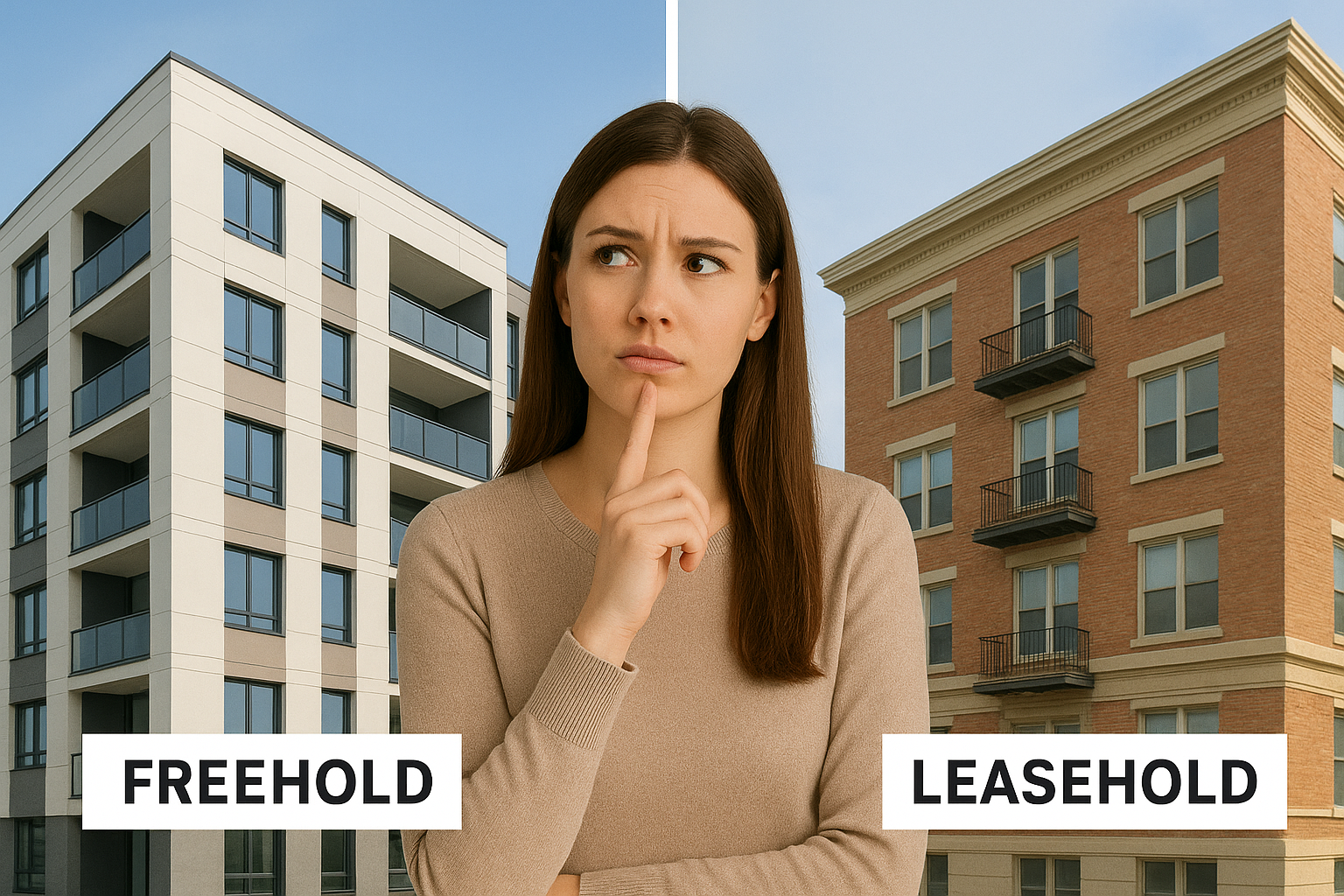When buying an apartment, most buyers focus on location, amenities, and price—but one crucial factor often goes overlooked: ownership type. Understanding whether a property is freehold or leasehold can significantly impact your long-term rights, resale value, and financial planning. This guide breaks down the difference between these ownership structures to help you make an informed decision.
1. What Is Freehold Ownership?
Freehold ownership means you own both the apartment and the land it stands on outright. You have perpetual rights over the property unless you choose to sell, transfer, or pass it on. This is the most common and preferred form of ownership in India.
Key Advantages of Freehold Ownership
-
Full ownership of both land and structure
-
Higher resale value and easier loan approvals
-
No renewal costs or lease expiry risks
-
Freedom to renovate (within regulations)
Freehold properties generally offer greater long-term stability and make an excellent choice for end-use buyers and investors alike.
2. What Is Leasehold Ownership?
Leasehold ownership means you own the building unit, but the land belongs to a government authority or private entity. You receive rights to occupy the property for a fixed period—typically 30, 60, 90, or 99 years.
Key Characteristics of Leasehold Properties
-
You own the apartment but not the land
-
Lease requires renewal after expiry
-
Additional charges like lease rent may apply
-
Banks may scrutinize loan applications more strictly
-
Resale value can drop as the lease period shortens
This type of ownership is more common in metropolitan cities and government-developed zones.
3. Major Differences Between Freehold and Leasehold
Ownership Rights
-
Freehold: Complete ownership
-
Leasehold: Time-bound, limited rights
Resale Value
-
Freehold homes appreciate faster
-
Leasehold value decreases as lease tenure reduces
Loan Accessibility
-
Freehold properties enjoy smoother loan processing
-
Leasehold may require additional documentation
Flexibility
-
Freehold allows more freedom for modifications
-
Leasehold changes may require approvals from the land authority
4. Which Option Is Best for Buyers?
Your choice depends on your long-term goals.
-
For end-use living: Freehold is usually the best option due to greater stability.
-
For short-term budget buys near metros: Leasehold may offer lower upfront cost.
In the middle of your research, if you’re considering premium units such as 3 BHK Apartments for Sale in HSR Layout, knowing the ownership type becomes even more important because it directly impacts resale value and long-term returns.
5. Factors to Consider Before Choosing Ownership Type
Your Investment Horizon
Long-term buyers benefit more from freehold ownership due to perpetual rights and better appreciation.
Budget
Leasehold properties may offer better pricing initially but can involve renewal and lease rent costs later.
Bank Loan Eligibility
Always check how the ownership type affects financing, EMI planning, and documentation.
Future Resale
Freehold homes typically attract more buyers and offer better market stability.
Final Thoughts
Whether you choose a freehold or leasehold apartment, understanding the legal structure of property ownership is vital for making a secure, informed, and profitable decision. Evaluate your long-term plans, financial capacity, and preferred area before finalizing the purchase. A clear understanding today helps you avoid complications tomorrow and ensures your new home truly becomes a valuable long-term asset.














